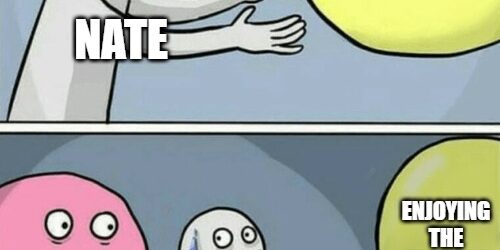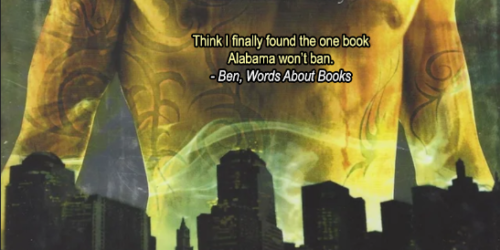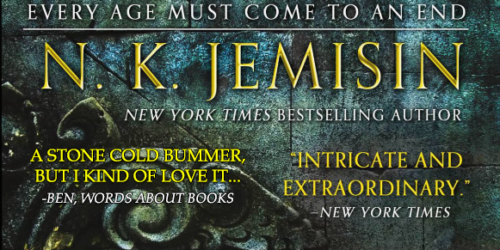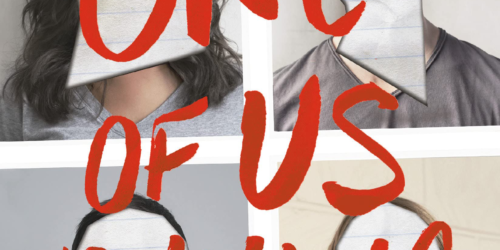Ben Reviews – The Hunger Games (The Hunger Games #1) by Suzanne Collins
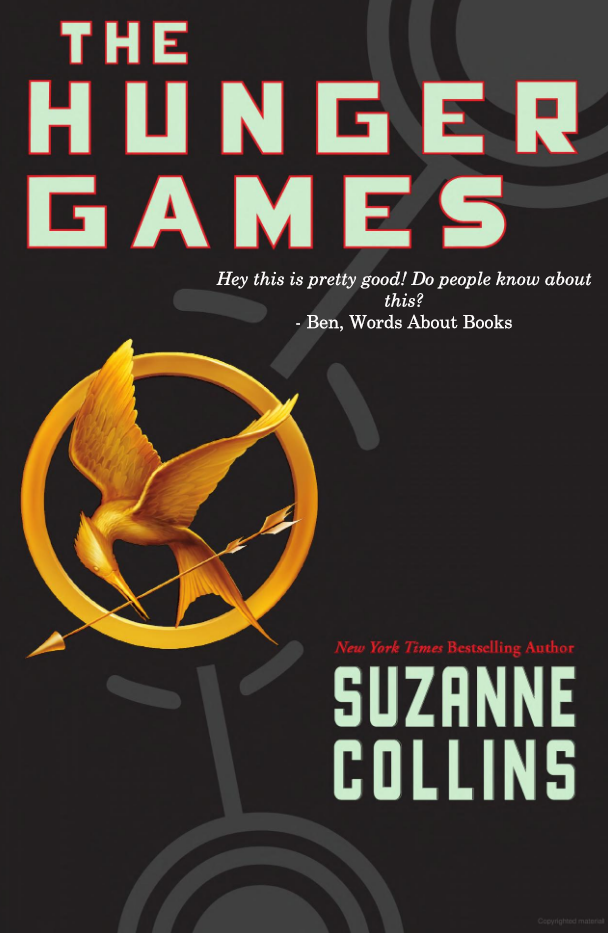
I’m a late comer to The Hunger Games. When it came out I was a little older than the target demographic. I saw the movie once, a long time ago, and I didn’t really care for it. I never investigated much beyond that. I was finally convinced to give it a try, and surprisingly, I thought it was pretty good.
For anyone who may not know, The Hunger Games is a story about a girl named Katniss Everdeen. Katniss lives in the dystopian society of Panem. Panem is split into 12 districts that are separated by economic function. Katniss is from district 12, which is one of the poorest districts and, as far as I can tell, is more or less modern day West Virginia. In a barely remembered past, The Districts rebelled against The Capitol. They lost the war, and as a punishment, each year two children from every district must be chosen to compete in a battle royal style killing game. When Katniss’s sister is selected as tribute for the games, Katniss volunteers to take her place. Now she must do whatever it takes to survive The Hunger Games.
The idea of throwing a bunch of teenagers into an arena to kill each other is not unique to The Hunger Games, but Hunger Games adds a unique spin to it. The book is split into three parts, but really it could have been split into 2: Before the Games and The Games.
For the first half of the book, we follow Katniss as she struggles to provide for her family in a totalitarian society where almost everything a district produces is consumed by The Capitol, leaving nothing for its people. We learn her history. What’s important to her. Which people matter most to her. Her first exposure to The Capitol demonstrates starkly the difference between the wealthiest parts of Panem and the poorest. The Capitol seems cartoonishly opulent at first glance, but the more I think about it the more I think about it the more I think how cartoonishly opulent the nicest neighborhoods of Silicon Valley would appear to someone from a West Virginia holler.
Once they’re in The Capitol, Katniss and her fellow tribute, Peeta, need to learn how to market themselves to the crowd to gain sponsorships that will help them during the competition. At the time this was written, it was meant to satirize reality television. Thankfully, that fad is dying, but the idea that people will do anything and live any lie to build a brand is still all too relatable. From cultivating an aesthetic to building a compelling brand narrative, The Hunger Games could easily be about influencer marketing.
The second half of the books focuses on the killing game. This is either going to make or break the book for people. The actual Hunger Games are violent, cruel, and brutal. I don’t pay much attention to whether or not a book is Young Adult or not, but I’m honestly surprised what they got away with in a Scholastic book. I’m pleasantly surprised, but my favorite genre is horror so take that with a grain of salt. Either way, once the games started I was hard pressed to put the book down. I think Suzanne Collins may have been trying to tell me something, there.
I’ve seen a lot of reviewers commenting on the unbelievability of the games. Technologically, the games might as well be magic. If you can’t stomach invisible cameras that are everywhere and no where, or genetically modified werewolves, then you’re going to have a bad time. It’s a fair criticism, though. The Capitol’s technological superiority is a bit under developed.
I’ve also seen reviewers who find the concept of the game itself unimaginable. They cannot believe that society would ever tolerate a game in which children are forced to kill each other for sport. All I can say to this is that I read the newspaper today and I do not share their optimism.
The biggest weakness in The Hunger Games for me is the love triangle. Gale isn’t really present in enough of the text for me to care much about his feelings. The romance with Peeta is forced on Katniss. She waffles on whether or not she feels something for him, but the circumstances of their bonding are so traumatic that I don’t blame her for being confused and put off by it. I think the existence of, and constant reference to, Gale’s jealousy does very little for this book. I’d guess it’s developed more in the future, but I think the story of this book would have been better served if Gale were not in it.
If you can stomach the killing game, and if you’re prepared to not take the logistics of the story very seriously, I think it’s a light, compelling read. I would recommend it.
The Rubric
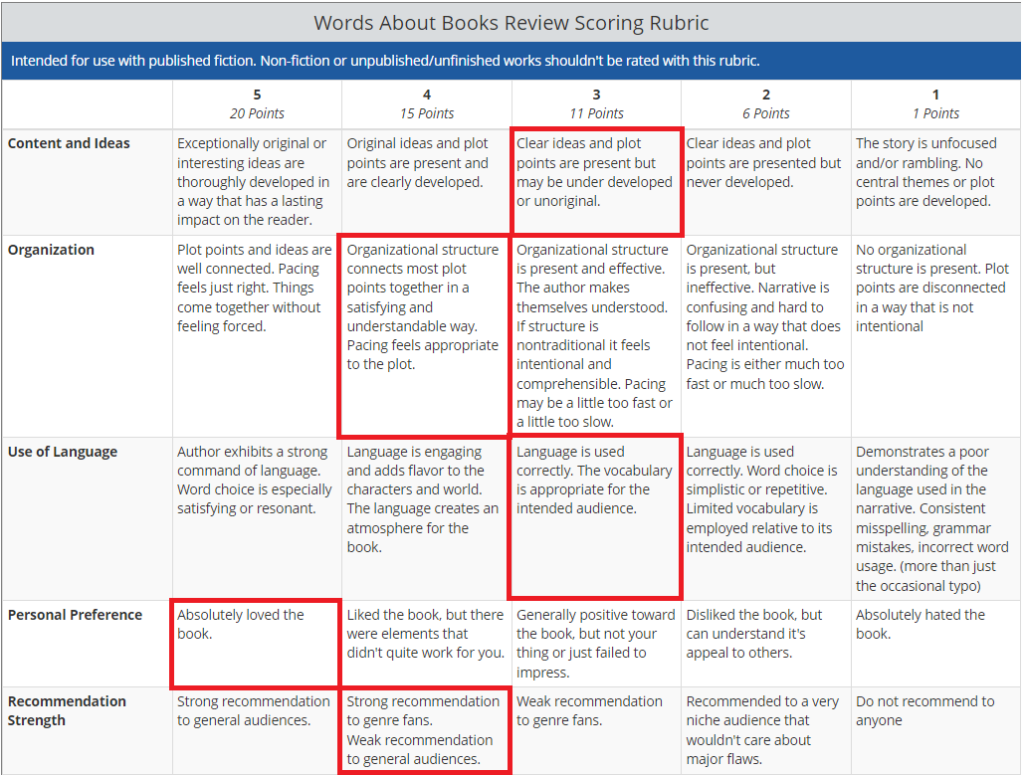
Content and Ideas (3/5) – As much as I loved the book, I don’t disagree with the criticism that there aren’t a lot of original ideas here. I believe Suzanne Collins when she says that she was completely unaware of Battle Royal; however, I was not unaware of it. The most shocking part of the book, The Hunger Games itself, is not original to me. The love triangle definitely was not original. The YA protagonist rebelling against a totalitarian regime is certainly not original. With that said, I think it does the tropes well and that is worth something, but it’s not worth a 4.
Organization (4/5) – One of my biggest issues with these multipart YA dystopian novels is the pacing. Once publishers got their hands on Harry Potter it felt to me like every publisher was looking for the next 7-book smash hit. They weren’t afraid to stretch weak material in their quest. Part of the reason that I never read The Hunger Games is that I expected to be bored (as I was during the movie). The pacing is perhaps the most pleasant surprise of all. I felt like I was always learning something or an event of real consequence was occurring.
Use of Language (3/5) – I’ve seen people complain about Suzanne Collins’s prose being weak. It seems fine to me. The best thing I can say about it is that it did not stand out in either a good or bad way.
Personal Preference (5/5) – This is exactly what I want in YA book. I like seeing tired tropes done well, what can I say? The Hunger Games feels like a soap opera that isn’t afraid to engage in a but of horrific violence, and apparently, that is one of my favorite genres.
Recommendation Strength (4/5) – Not that anyone needs me to recommend this to them. I’m a decade late to the party. For anyone who might still be on the fence, though, I will add that this is one of the best representations of its genre that I have seen. It is still very much of its genre, though. If the teen YA dystopia thing is something you despise, The Hunger Games will not change your mind. It’s got a message, but it’s not deep and it’s not subtle. It is a lot of fun, though.
